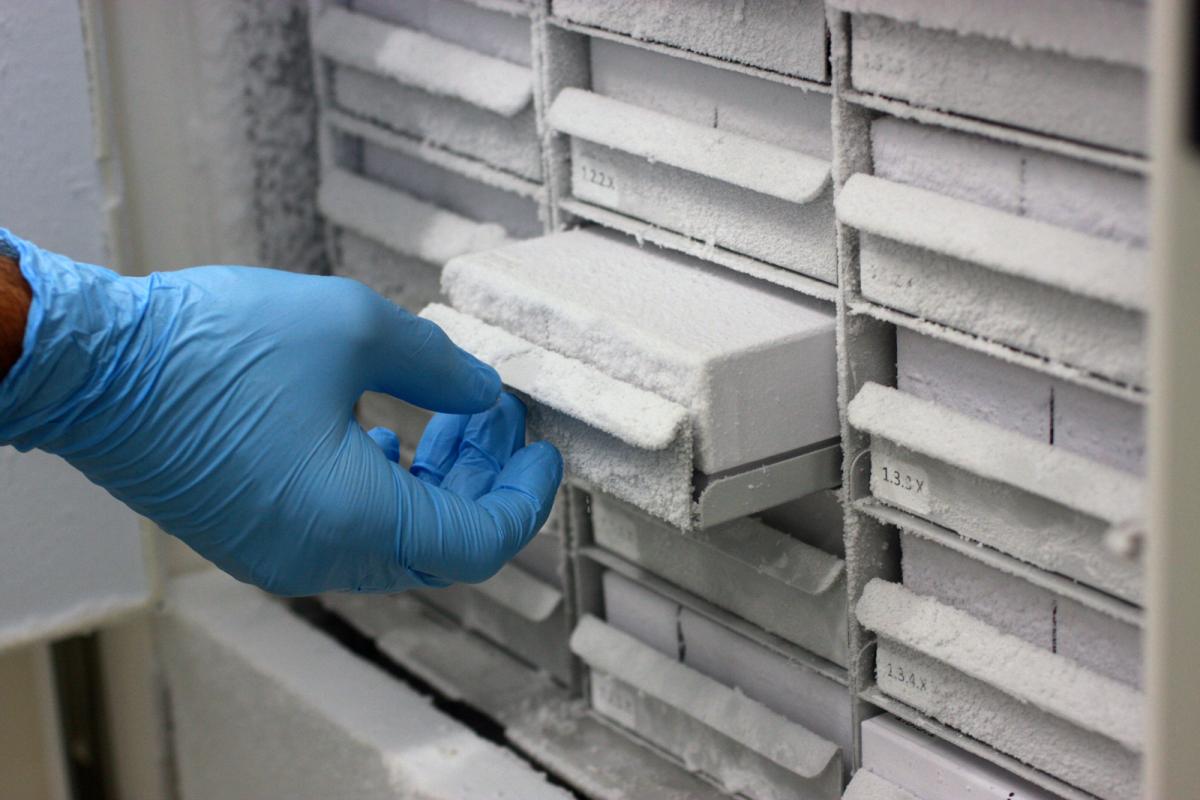The European Research Council has awarded 29 consolidator grants worth about EUR 2 million each in the Netherlands. Three TU Delft scientists have managed to get hold of one.
Microbiologist Brouns set up the Fagenbank (Photo: TU Delft)
The TU Delft scientists are Stan Brouns (AS), Kristof Cools (EEMCS) and Simon Gröblacher (AS). The grants are awarded to scientists with between seven and 12 years work experience. They will allow them to run their own research team for up to five years. Among his activities, microbiologist Brouns set up the Fagenbank which develops bacteriophages as an alternative to antibiotics. He plans to use the European Research Council’s (ERC) funds to demonstrate how antiviral immune system bacteria provide protection from bacteriophages at the molecular and cellular levels.
Kristof Cools was awarded the grant for the March-on-in-Time: Boundary Element TimeDomain Domain Decomposition Methods (BET3D) project. He carries out research into simulation methods. His work will result in better transmitters and receivers using high frequency THz communication and visuals. These types of equipment have potential use for medical imaging. The aim in the simulations is to crack the so-called Maxwell comparisons. These are highly complex comparisons that are not really solvable, but where solutions can only be approximated. In this case, the more powerful the calculations, the closer you get to a solution. Fortunately, Cools will be able to use the huge calculation capacity of the High Performance Computing Centre that opens soon on the TU.
Simon Gröblacher of the Groeblacher Lab works on quantum physics, the key to understanding how physics works. The grant will allow him to research new regimes and applications in quantum physics.
TU Delft in third place
In the Netherlands, the Free University of Amsterdam leads the pack with four grants. The University of Leiden and TU Delft do well with three apiece.
This year’s ERC grants totalled EUR 655 million. Germany and the United Kingdom tied in first place with 50 consolidator grants each. France was awarded 34 grants and then came little the Netherlands with 29 grants.
This year, 2,506 scientists applied for a grant. Of all the applications, only 13% was honoured. With grant award percentages of 14.5% and 12.6% respectively, female scientists were just above the average with male scientists just below.
HOP Evelien Flink/ Delta
Do you have a question or comment about this article?
redactie@hogeronderwijspersbureau.nl


Comments are closed.